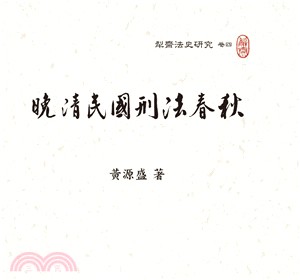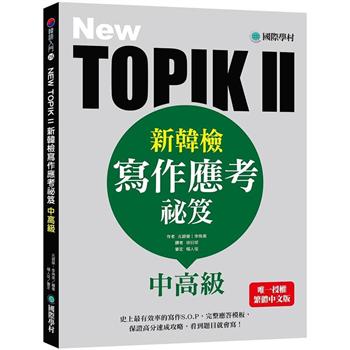| FindBook |
有 1 項符合
晚清民國刑法春秋的圖書 |
| 圖書館借閱 |
| 國家圖書館 | 全國圖書書目資訊網 | 國立公共資訊圖書館 | 電子書服務平台 | MetaCat 跨館整合查詢 |
| 臺北市立圖書館 | 新北市立圖書館 | 基隆市公共圖書館 | 桃園市立圖書館 | 新竹縣公共圖書館 |
| 苗栗縣立圖書館 | 臺中市立圖書館 | 彰化縣公共圖書館 | 南投縣文化局 | 雲林縣公共圖書館 |
| 嘉義縣圖書館 | 臺南市立圖書館 | 高雄市立圖書館 | 屏東縣公共圖書館 | 宜蘭縣公共圖書館 |
| 花蓮縣文化局 | 臺東縣文化處 |
|
|
- 圖書簡介
序
法史學研究的範圍究竟該含蓋多廣,可能言人人殊,理想上,至少宜包括法律規範、法律制度、法律思想、法律意識與司法實踐等各個層面,並側重在觀察法律歷史發展過程中的常與變。而在具體的探討中所觀照的面向,一在史實的重建,一在歷史現象的探因與詮釋。前者指的是法律歷史的「現象世界」,即「當時的法規範是什麼?」後者則是法律歷史的「根源世界」與「意義世界」,即「法制歷史的發展為什麼是如此?」以及「法制發展歷史現象背後所蘊涵的意義到底為何?」
長年以來,我總覺得,完整而深刻的法史學研究,離不開史料、史實與史論三部曲;沒有史料就沒有歷史,既不能忽略基本史料的辨證與整建,以追求對於過往法律生活現象最大程度的客觀呈現;同時,也要致力於法律歷史發展動因的探尋,以了解其所以然的因素,乃至聯想起歷史的過去、現在與未來,進而達到知其所應然的境地。可以說,現象世界的重現,是法史學研究的起點,也為一切推論與評價的基石。
泛泛說來,台灣現行的六法體制架構與源起,絕大部分肇端於晚清民初乃至國民政府時期的法律繼受工程,惟該段法制歷史,囿於種種因緣,在海內外法史學的研究上,曾經長期埋在荒煙蔓草中,縱使少數人有意耕耘,也只能作些零散式的探勘。為了填補罅漏,個人於1998至2004年間,曾多次遠赴海內外各地,蒐集北洋政府時期(1912-1928)和國民政府時期(1928-1948)的司法裁判史料,經過十多年的整編,《平政院裁決錄存》、《大理院民事判例輯存》、《大理院刑事判例輯存》、《最高法院判例輯存》(民事編、刑事編)等共二三大冊已陸續刊行於世。
在司法檔案整編告一段落後,深感立法規範與司法實踐本為體用關係,研究裁判文書,不能輕忽同一時期的相關立法史料;蓋唯有將立法文獻與司法審判檔案兩相對照,才能洞察規範「應然面」與審判「實然面」間所存在的落差,以期精確掌握法制發展的真實面貌,也才能給予中肯的解析與詮釋,為此,最近幾年,又將關注的重點轉移到立法史料上面。
欣慰的是,透過多番的梳理過程,對於如何蒐集、整理及校注法制史料文獻,已獲得精實的寶貴經驗。之前整編的成果《晚清民國刑法史料輯注》一書,大致得以窺見清末民國刑法變遷的整體輪廓。而在纂輯裁判文書與立法規範的同時,也不忘進行實質內容的研究,邊寫邊發表於國內外學術期刊,如今積稿已儼然可成冊,乃重加增損分合,付梓問世,希望這些史料的現形、史實的建構、義理的闡明,能提供有心人進行立說時,益加貼近歷史事實,避免主觀臆測,而對於當今的立法及司法實務界檢討法制興革時,或可提供一隅之得。
歷史證明,過去與當代並非完全的「對立」與「斷裂」;其實,於今看來,一部百年刑法史具有很高的連續性與積累性,更有數不盡前賢的智慧在其中。晚清、南京臨時政府、北洋政府、國民政府與當今民國台灣之間一線牽,這一以貫之的「線」似無法由滄桑的政權輪替所任意切割,它是一種思想、一種傳承;薪盡而火傳,傳的是法之「意」,而不是有「形」之薪,然乎?否乎?
而本書之所以名為「刑法春秋」,一來係指歲月、光陰的遷移,以明一世紀以來社會變遷與刑法轉型的嬗遞歷程,〈寒山詩〉有云:「倏爾過春秋,寂然無塵累。」另者,不無隱寓筆則筆、削則削,以效「一字褒貶」的微言要義;前年,與梁慧星教授同訪嶺南古村,先生觀景生情,即興吟賦七律一首相贈,最後兩句為「勸君高擎董狐筆,散帙絕編細鉤沈」,期許何等之深,雖不能至,猶當隨緣而為。
記得小時候,常聽年長者講「萬般因緣」這個詞,那時不懂,而今,已漸能粗解其義,一切事物因緣生、因緣滅。多年來,外雙溪犁齋門前,時而風清景靜,時而雲煙繚繞,而枝頭那三五隻國寶級的台灣藍鵲依舊如來如去;樹上那一群無憂無慮的松鼠總是自由自在地迂迴攀爬,園圃裡種的蔬果大半分給蟲鳥吃了。常有人問起,為什麼總愛好山居歲月,應之曰:
君問何事棲溪山 門對千峰意自閑
書藏萬卷心常空 別有觀音斜陽邊
匆匆,耳順之年已過,雖稍能體悟「過去心不可得、現在心不可得、未來心不可得」,「一切有為法,如夢幻泡影,如露亦如電」,卻還是未能放下世間法的羈絆,這難道是人性中的「癡」?何時才能真正「無所住」而寫?是為序。2018年戊戌初春
外雙溪犁齋 - 作者簡介
黃源盛
1955年生於台灣雲林。台灣大學法學博士,日本京都大學法學部研究、外國人研究員,東京大學東洋文化研究所客座研究員,國家高等考試法制人員及格。專長法史學、刑法學,著有《中國傳統法制與思想》(1998,五南)、《民初法律變遷與裁判》(2000,國立政治大學法學叢書 47)、《法律繼受與近代中國法》(2007,國立政治大學法學叢書 55)、《漢唐法制與儒家傳統》(2009,元照)、《民初大理院與裁判》(2011,元照)、《中國法史導論》(2016,犁齋社)以及《晚清民國刑法春秋》(2018,犁齋社)等書,另有法史學相關學術論文多篇。
近二十年來,致力於「民初司法檔案」與「晚清民國立法史料」的整編與研究,纂輯有《平政院裁決錄存》(2007,五南)、《景印大理院民事判例百選》(2009,五南)、《晚清民國刑法史料輯注》(2010,元照)、《大理院民事判例輯存》(2012,犁齋社)、《大理院刑事判例輯存》(2013,犁齋社)、《最高法院民事判例輯存(1928-1934)》(2014,犁齋社)、《最高法院刑事判例輯存(1928-1934)》(2014,犁齋社)、《晚清民國民法史料輯注》(2014,犁齋社)等法制史料數十冊。先後兼職於台北大學、台灣大學、東吳大學等校,講授法制史、中國法律思想史、刑法;前政治大學法學院特聘教授,現專任輔仁大學法律學系教授,兼中央研究院歷史語言研究所研究員。
Yuan-sheng Huang
Specialized Areas:
History of Chinese Legal Thought, History of Law, Criminal Law.
Academic Experience:
Education
Ph.D., College of Law, National Taiwan University.
LL.D. Program, Graduate school of Law, Kyoto University.
Current and Previous Positions
Visiting Fellow, Graduate school of Law, Kyoto University.
Visiting Fellow, Institute for Advanced Studies on Asia, University of Tokyo.
Adjunct Research Fellow, Institute of History and Philology, Academia Sinica.
Distinguished Professor, College of Law, National Chengchi University.
Adjunct Professor, College of Law, National Chengchi University.
Professor, Fu Jen School of Law, Fu Jen Catholic University.
Selected Publications(Books)
1. Chinese Traditional legal System and Thought(1998)
2. Legal Transition and Judgments in early Republic of China(2000)
3. Legal Reception and Modern Law in China(2007)
4. Hang-Tan Legal System and Confucianism(2009)
5. The Supreme Court and It's Judgments in the Early Republic of China(2011)
6. The Introduction of the Legal History of China(2016)
7. Historical Comments of Criminal Law in Late Qing Dynasty and Republic of China(2018)
8. A Compilation of the Judgments of the Supreme Administrative Court in the Early Republic of China(2007)
9. The Hundred Selection of Civil Precedents of the Supreme Court in the Early Republic of China(2009)
10. A Compilation of the Civil Precedents of the supreme Court in the Early Republic of China(2012)
11. A Compilation of the Criminal Precedents of the Supreme Court in the Early Republic of China(2013)
12. A Compilation of Civil Law from the Late Qing Period to Republic of China(2014)
13. A Compilation of the Criminal Precedents of the Supreme Court (1928-1934)(2014)
14. A Compilation of the Civil Precedents of the Supreme Court (1928-1934)(2014) - 目次
導言 刑法基本原則的古今絕續 1
上篇 法典編纂系譜 47
第一章、帝制中國最後一部傳統刑法典
──《大清現行刑律》的津渡 49
第二章、傳統法與繼受法的頡頏
──《大清新刑律》的禮法爭議 85
第三章、法律繼受與法律語言的轉換
──《大清新刑律》中的法言法語 117
第四章、民國第一部刑法典
──民元《暫行新刑律》的歷史與理論 163
第五章、隆禮重典之作
──民國四年《修正刑法草案》摭遺 193
第六章、內外交迫下的新品
──民國七年《刑法第二次修正案》及其改定案述評 221
第七章、國民政府的首部刑典
──民國十七年的舊刑法與司法實踐 253
第八章、回顧與動向
──民國二四年刑法及其八十年來修正述要 291下篇 理論與實踐 331
第九章、人性、情理、法意
──親親相隱的傳統與當代 333
第十章、情慾、規範、歷史
──親屬相姦罪的流變及其趨向 381
第十一章、色戒
──從無夫姦到通姦除罪化的百年滄桑 421
第十二章、固有倫常與舶來法律
──殺尊親屬罪的歷史、觀念及其歸趨 453
第十三章、禮刑之間
──從供養有闕到遺棄尊親屬 503
第十四章、從半人半物到齊民
──清末民國禁革奴婢買賣的光與影 545
第十五章、習慣在刑事審判中的運用
──以台灣原住民舊慣為例 589
總結 621附錄 晚清民國歷次刑法修正比較表 625
名詞索引 631
人名索引 641
Historical Comments on Criminal Law in the Late Qing Dynasty and the Republic of ChinaYuan-sheng Huang
Table of Contents
Introduction:The history and transition of the fundamental principles of Criminal Law in the late Qing Dynasty and the Republic of China 1
Part I The Genealogy of the Code Compilation 47
Chapter 1 The last traditional Criminal Code of China’s imperial system ---The continuity and transition of the Current Criminal Code of the Qing Dynasty 49
Chapter 2 The antagonism between traditional laws and transplanted laws--The conflict between the traditional etiquette and the laws of the New Criminal Code of the Qing Dynasty 85
Chapter 3 Legal reception and the switching of legal languages--The legal language in the New Criminal Code of the Qing Dynasty 117
Chapter 4 The first Criminal Code of the Republic of China--The history and theory of the Provisional New Criminal Code of the first year of the Republic of China 163
Chapter 5 The work of etiquette and legal emphasis--The collection of the Revised Criminal Draft of the 4th year of the Republic of China 193
Chapter 6 New work under pressure from at home and abroad--The Second Amendment of the Criminal Code of the 7 th year of the Republic of China and its comments 221
Chapter 7 The first Criminal Code of the government of the Republic of China--The Old Criminal Code and the judicial implementation of the 17 th year of the Republic of China 253
Chapter 8 Retrospect and development--The Criminal Code of the 24th year of the Republic of China and the evolutionary process of the amendments during the past eighty years 291Part II Theory and Practice 331
Chapter 9 Human nature, ethical reasoning and legal principles--The traditional and present conditions of the immunity of mutual concealment among relatives 333
Chapter10 Lust, regulations and history--The historical development and tendencies of adultery between blood relatives 381
Chapter11 Lust and caution--One hundred years of vicissitudes from fornication to the decriminalization of adultery: A study on the controversy over the abrogation of the statute on fornication during the legal reception period in the late Qing Dynasty 421
Chapter12 Traditional moral human relations and foreign laws--The history, concepts, and tendencies of offences regarding the murder of elder linear blood relatives 453
Chapter13 Between etiquette and crime : From the lack of care to the abandonment of elder linear blood relatives 503
Chapter14 From a mixture of property and humans to equal rights--The brightness and darkness of the abrogation of the slave trade 545
Chapter15 The application of customs in Criminal trials --A case study of the old customs of Taiwanese aboriginals 589
Conclusion 621Appendix A comparison table of all of the amendments of the Criminal Code of the late Qing Dynasty and the Republic of China 625
Noun Index 631
Name Index 641
|










